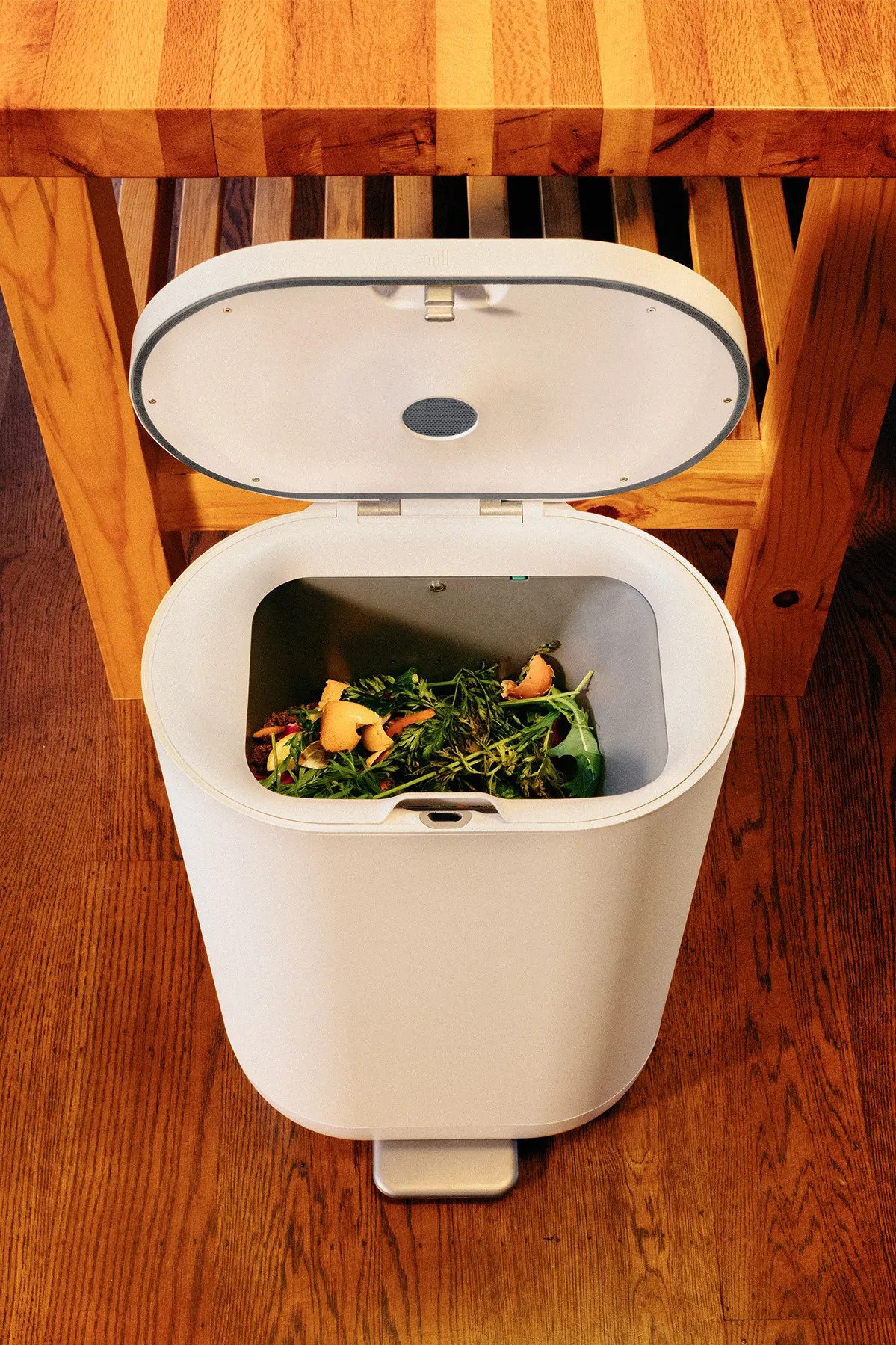Waste Hater: Mill
If you have extra food that’s nutritious and edible, your first move is to donate, share or repurpose that food in other ways.
Your second move?
It used to be composting, but a new product and service by the team behind Google Nest may be disrupting the practice.
The company is called Mill. It offers a subscription-style product and donation service involving a cool, little bin that breaks down your food, dries it out, and turns it into an ingredient for animal feed.
According to Fast Company, the bin contains an “internal heat source that dehydrates food… overnight, simultaneously drying and grinding food over the course of several hours.”
And there’s no weird odor infiltrating your kitchen, a major selling point.
Mill charges a monthly membership fee to join the club, and enables you to track the environmental impact of your donations (Sound familiar? See Replate!).
The goal - which we’re super on board with! - is to reduce the impact of food waste on the environment by providing a consumer-centric alternative to throwing it away.
In a press release, Mill co-founder and president Harry Tannenbaum said, "Food in landfills is one of the most solvable climate problems facing us today. We're building a pathway to connect what people can't eat at home with farms that benefit from a more sustainable feed ingredient."
The process works like this:
Sign up and order a bin.
Put the bin in your kitchen.
Dump, literally, any food item into it.
Turn on the processor overnight.
The next day, it looks like a small pile of dirt.
When your bin is full, schedule a donation, dump the dirt into a prepaid shipping box, and send it off.
Mill takes it from there. The company works with a few processing facilities that purchase and turn the food into animal feed.
The concept fits within the scope of the EPA’s waste hierarchy, an allocation for how various materials should be disposed of to promote sustainable practices and reduce greenhouse gas emissions. The chart begins with source reduction and repurposing, and ends with the trash.
Mill falls somewhere between reuse and recycle.
And while some suggest it may replace composting, it seems more like a supplement to the system. Not everyone has a garden or place to dispose of their compost, so Mill provides an additional solution for consumers.
And we are all about solutions! Three cheers for innovation.
To learn more about Mill, visit their website.
And find everyone to know about Replate here!

